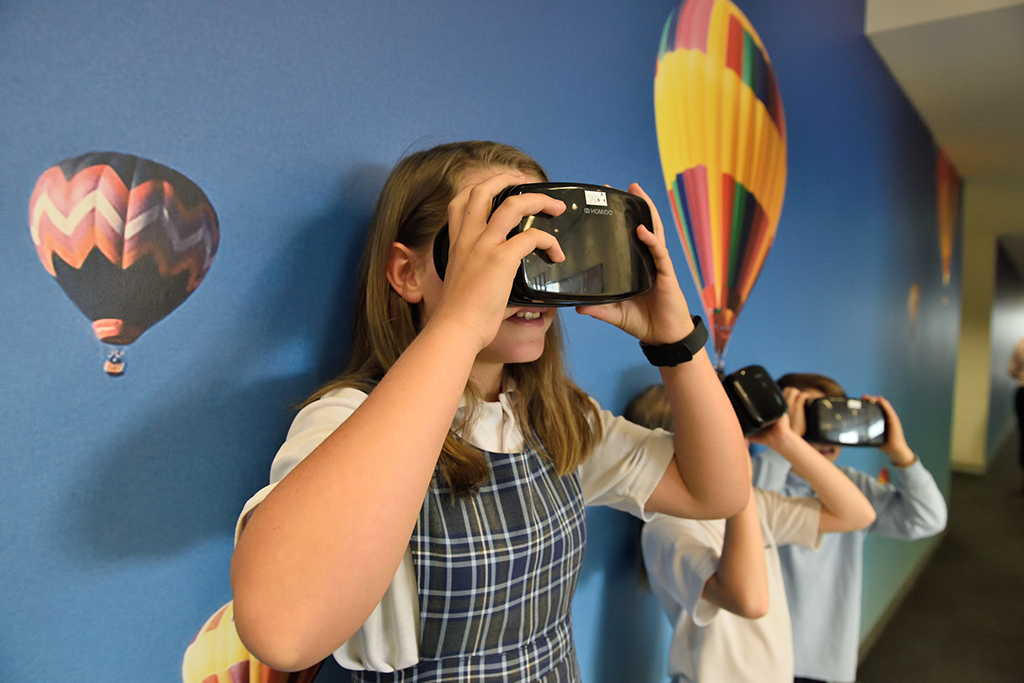Education has always been a cornerstone of society, shaping the minds of individuals and driving societal progress. However, in recent years, the world of education has been undergoing a seismic shift fueled by the relentless march of artificial intelligence (AI), virtual reality (VR), and online learning. As we observe the age-old right of passage related to move-in day at colleges and universities, it is crucial to examine the future of education in this digital age and explore the potential challenges and innovative pathways that lie ahead.
The Digital Revolution: AI and VR in Education
The digital revolution has paved the way for the integration of AI and VR in education, transforming the learning experience for students worldwide. Online learning has witnessed a significant surge in popularity, with an increasing number of students engaging in online courses. This shift from traditional classrooms to virtual platforms underscores the evolving role of brick-and-mortar institutions in an increasingly technology-driven world.
The role of universities as bastions of knowledge and personal growth is being challenged like never before.
-Ron Sacks
AI and VR have emerged as powerful tools that offer personalized and adaptive learning experiences. AI technology enables enhanced personalization, catering to the individual needs of students and promoting a more dynamic and engaging learning environment. VR, on the other hand, immerses students in interactive simulations, bridging the gap between theory and practice. From exploring ancient civilizations to visualizing complex scientific concepts, VR opens up new avenues for experiential learning.
However, the rise of online education and virtual classrooms also raises concerns. While these platforms offer flexibility and accessibility, they may erode face-to-face interactions and the development of critical soft skills. Striking a balance between the benefits of technological innovation and the essential human elements of education poses a complex dilemma for educators and institutions.
The University Dilemma: Adapting to an Evolving Landscape
In the face of rapid technological advancements, traditional universities find themselves at a crossroads. The role of universities as bastions of knowledge and personal growth is being challenged like never before. Adapting to this evolving landscape requires a delicate balance between preserving the sanctity of established educational paradigms and embracing the dynamic potential of emerging technologies.
However, the inertia of bureaucracy, a preference for the status quo, and resistance to change pose formidable barriers to the necessary transformation of higher education. The consequences of failing to adapt are far-reaching, with graduates potentially ill-equipped to navigate the demands of the job market and the erosion of campus culture.
Innovative Pathways: Redefining the Education Landscape
Amidst these challenges, alternative pathways are emerging that offer fresh perspectives on education. Microschools, characterized by small class sizes and personalized instruction, provide an environment where students can deeply engage with their learning and receive individualized support. Project-based learning communities prioritize hands-on experiences, collaborative problem-solving, and interdisciplinary exploration, fostering critical thinking and adaptability.
The fusion of technology and education has also birthed novel possibilities, such as virtual reality (VR) and augmented reality (AR) learning experiences. VR enables students to immerse themselves in interactive simulations, bringing learning to life in ways traditional methods cannot. AR overlays digital content onto the real world, allowing students to interact with information in their immediate surroundings. These innovative approaches offer students a dynamic and immersive educational journey.

HPE Diversity Startup program
The HPE Diversity Startup program wants to support the growth of women and minority founders to get started and accelerate the growth and thrive in the digital age. This HPE force for good program provides complementary cloud services vouchers to eligible companies with our trusted HPE GreenLake service provider partner, Alpha3 Cloud.

Crafting the College of Tomorrow: A Vision for the Future
As the education landscape undergoes transformation, envisioning a college that thrives in the digital age becomes imperative. A model college would feature flexible learning environments designed to foster collaboration and adaptability. Tech-integrated classrooms would empower students to engage with cutting-edge tools and platforms, preparing them for a tech-driven world.
The curriculum of this college of the future would transcend traditional boundaries, focusing on personalized learning paths that align with individual strengths and aspirations. Project-based education would develop critical thinking, problem-solving skills, and adaptability through real-world challenges. Global engagement would be a cornerstone, facilitated through virtual classrooms, international partnerships, and augmented reality experiences. This blend of digital and physical interaction would offer students a dynamic and immersive educational journey.
Balancing Act: Striving for Transformation
As the trajectory of education is redrawn, universities must navigate the delicate balance between preserving the essence of higher education and harnessing the potential of technological innovation. While bureaucracy and resistance to change may impede progress, the imperative to adapt remains. The collective efforts of educators, administrators, and policymakers are crucial in reshaping a learning landscape that is responsive to the demands of the 21st century.
A Journey Forward
In the age of AI, VR, online learning, and augmented reality, education stands on the precipice of transformation. The choices made today will reverberate through generations, shaping the future of learning. While challenges persist, the boundless potential for an education that integrates technological advancement and human connection holds promise. By embracing innovation, fostering adaptability, and prioritizing holistic development, education can evolve to meet the needs of an ever-changing world. As we embark on this journey forward, the goal is to equip graduates with the skills and mindset necessary to navigate a rapidly evolving world and contribute to the betterment of society.
Subscribe to my Newsletter
Subscribe now for exclusive insights, expert perspectives, and a front-row seat to the future of tech. Join us as we explore emerging technologies and dive into the limitless possibilities of tomorrow.


